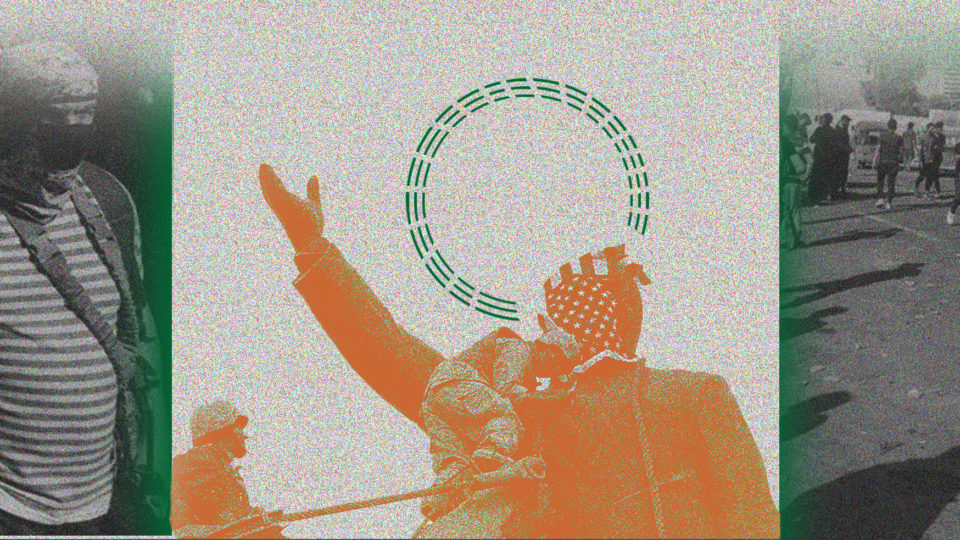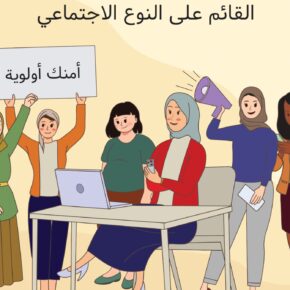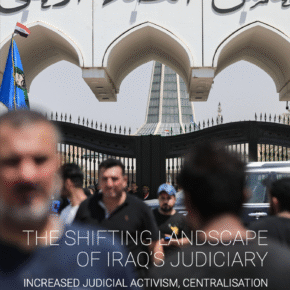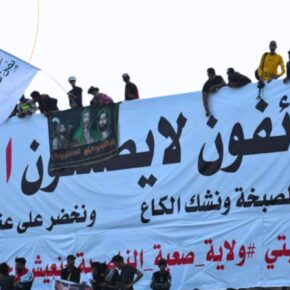Iraqi Defenders after Twenty Years of Change
19th of July: Hoqoq Observatory for Human Rights Defenders launched a groundbreaking report shedding light on the challenges and risks faced by human rights defenders in Iraq. The report titled “Iraqi Defenders after Twenty Years of Change” provides a comprehensive analysis of the situation of human rights defenders in the country over the period January 2022 – June 2023.
Executive Summary:
The report “Iraqi Defenders after Twenty Years of Change” is an extensive documentation and analysis of the hardships and dangers faced by human rights defenders in Iraq. It highlights the unwavering commitment of these defenders to uphold fundamental human rights principles despite facing harassment, intimidation, threats, and even physical violence.
Key Findings:
Challenges Faced by Human Rights Defenders: The report uncovers the multifaceted challenges confronted by human rights defenders in Iraq. These challenges include repressive government measures, legal harassment, smear campaigns, and social stigmatization aimed at silencing and discrediting their work.
Targeting of Marginalized Communities: The report emphasizes the targeting of human rights defenders advocating for marginalized communities, such as ethnic and religious minorities, women’s rights activists, and environmental defenders. Such targeting exacerbates the vulnerabilities faced by these communities.
Impunity and Lack of Accountability: The report highlights the culture of impunity surrounding attacks on human rights defenders. Perpetrators often evade accountability, which leads to an environment of fear and reluctance to advocate for human rights.
Restrictive Legal Frameworks: The report points out the restrictive legal frameworks used to suppress the work of human rights defenders. These laws are often vaguely worded and open to misuse, leading to arbitrary arrests and legal proceedings against defenders.
Digital Harassment: The report also reveals the increasing use of digital surveillance and cyberattacks to intimidate and harass human rights defenders, limiting their ability to communicate freely and securely.
Recommendations:
The Hoqoq Observatory’s report urges Iraq’s authorities to take immediate actions to protect human rights defenders and their essential work. The following are some of the key recommendations:
- Enact comprehensive legislation that safeguards the rights and safety of human rights defenders, in line with international human rights standards.
- Establish an independent mechanism to investigate attacks and threats against human rights defenders and ensure perpetrators are brought to justice.
- Guarantee the right to freedom of expression and peaceful assembly, ensuring that human rights defenders can operate without fear of persecution.
- Strengthen international partnerships to support human rights defenders and create solidarity networks for their protection.
Hoqoq Observatory calls on civil society, governments, and the international community to unite in protecting those who courageously defend human rights. The struggle for justice and equality is not just the responsibility of human rights defenders; it is the duty of every individual and institution committed to upholding the dignity of all.
For more information and access to the full report, please click here.





